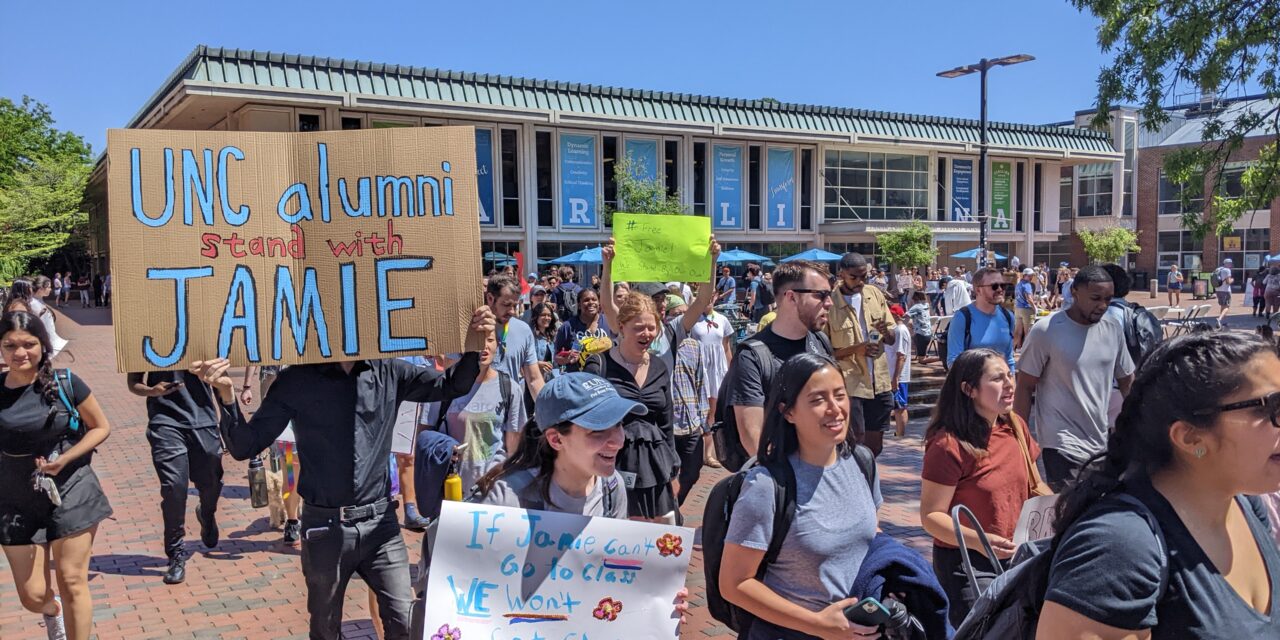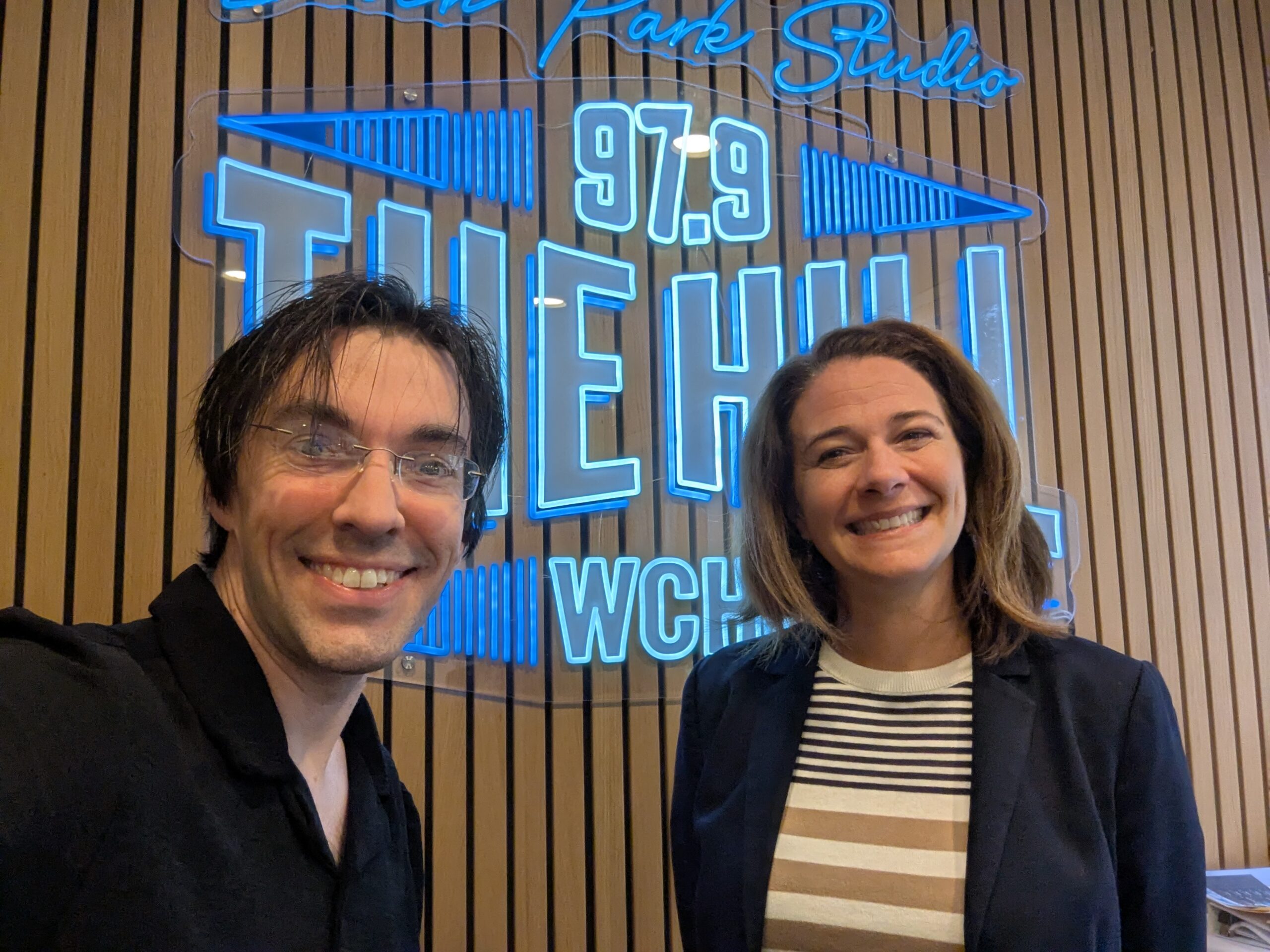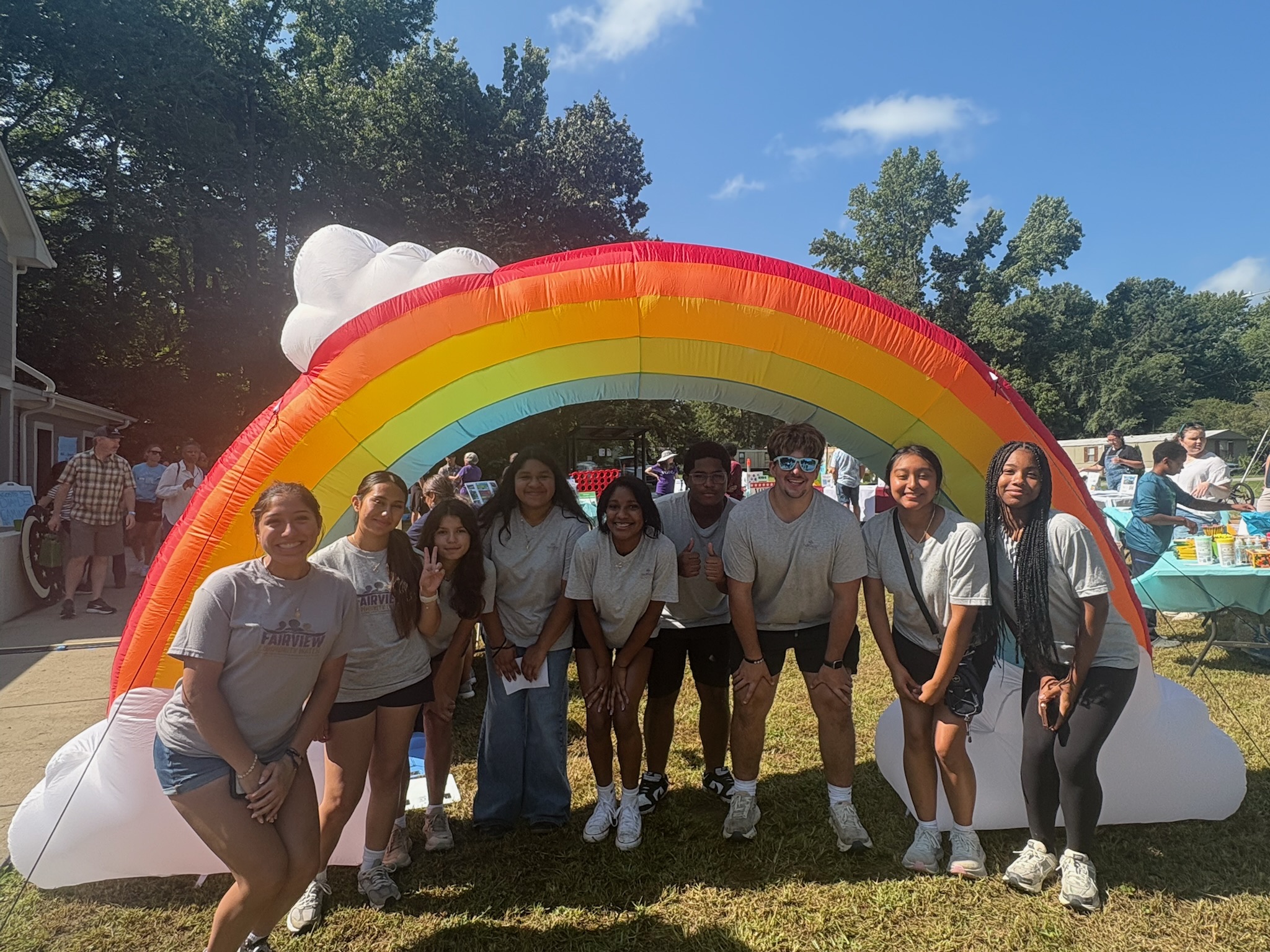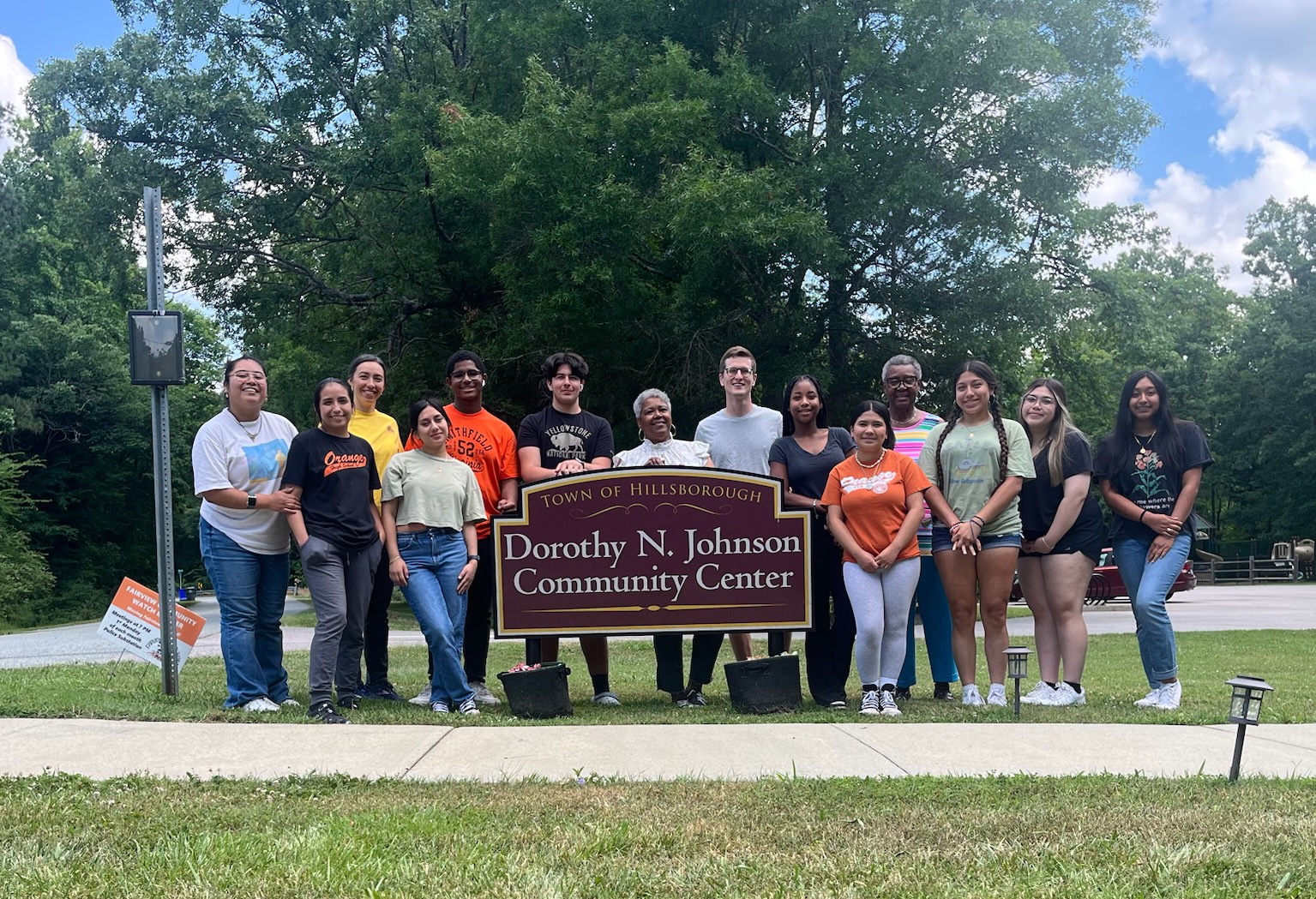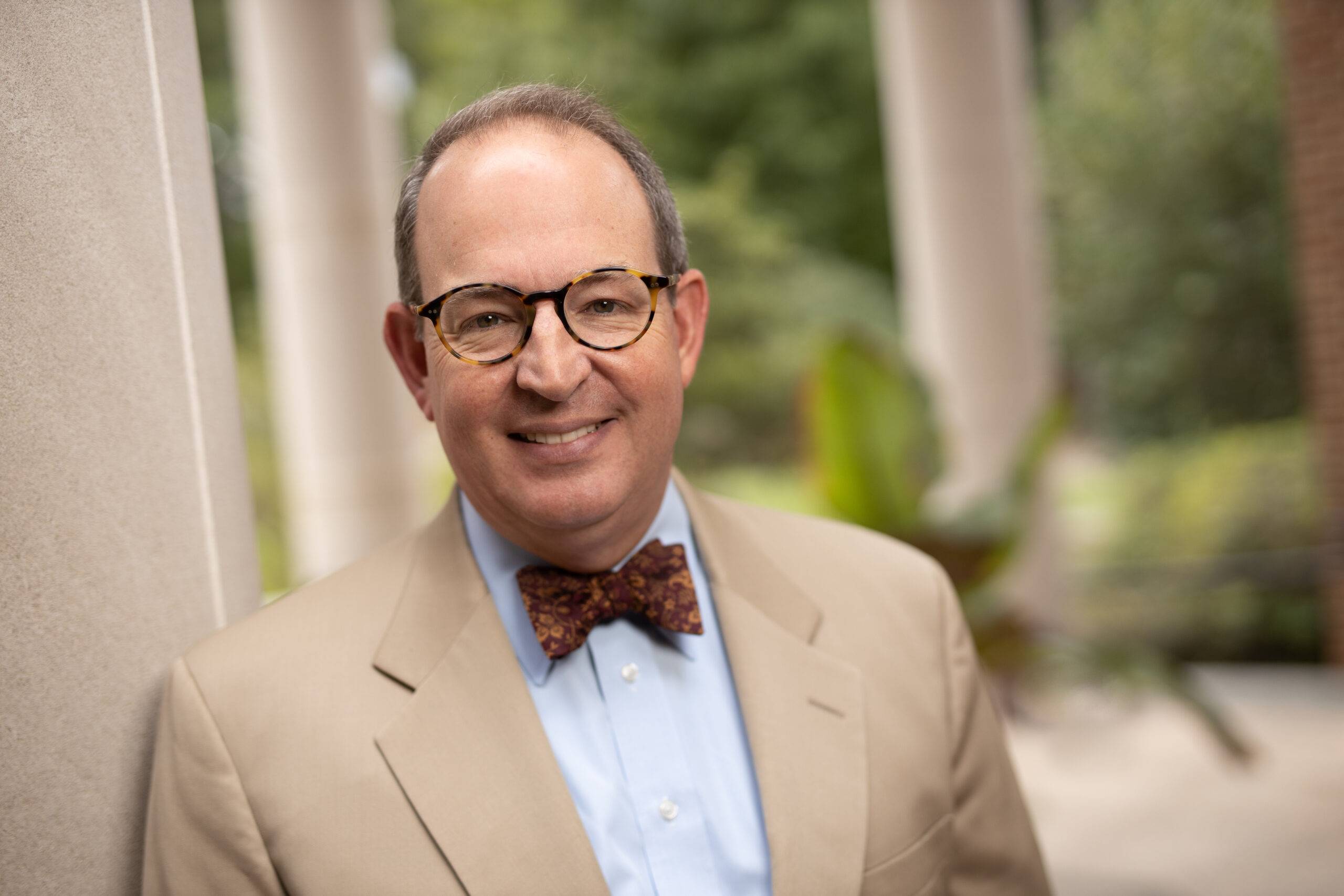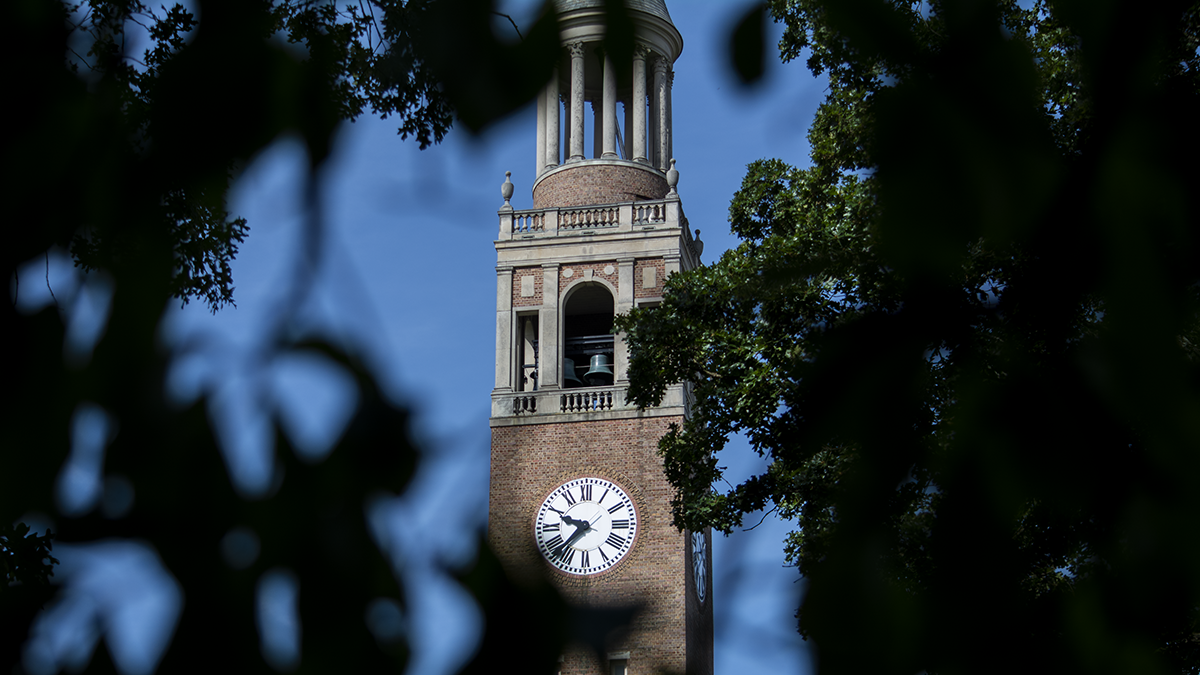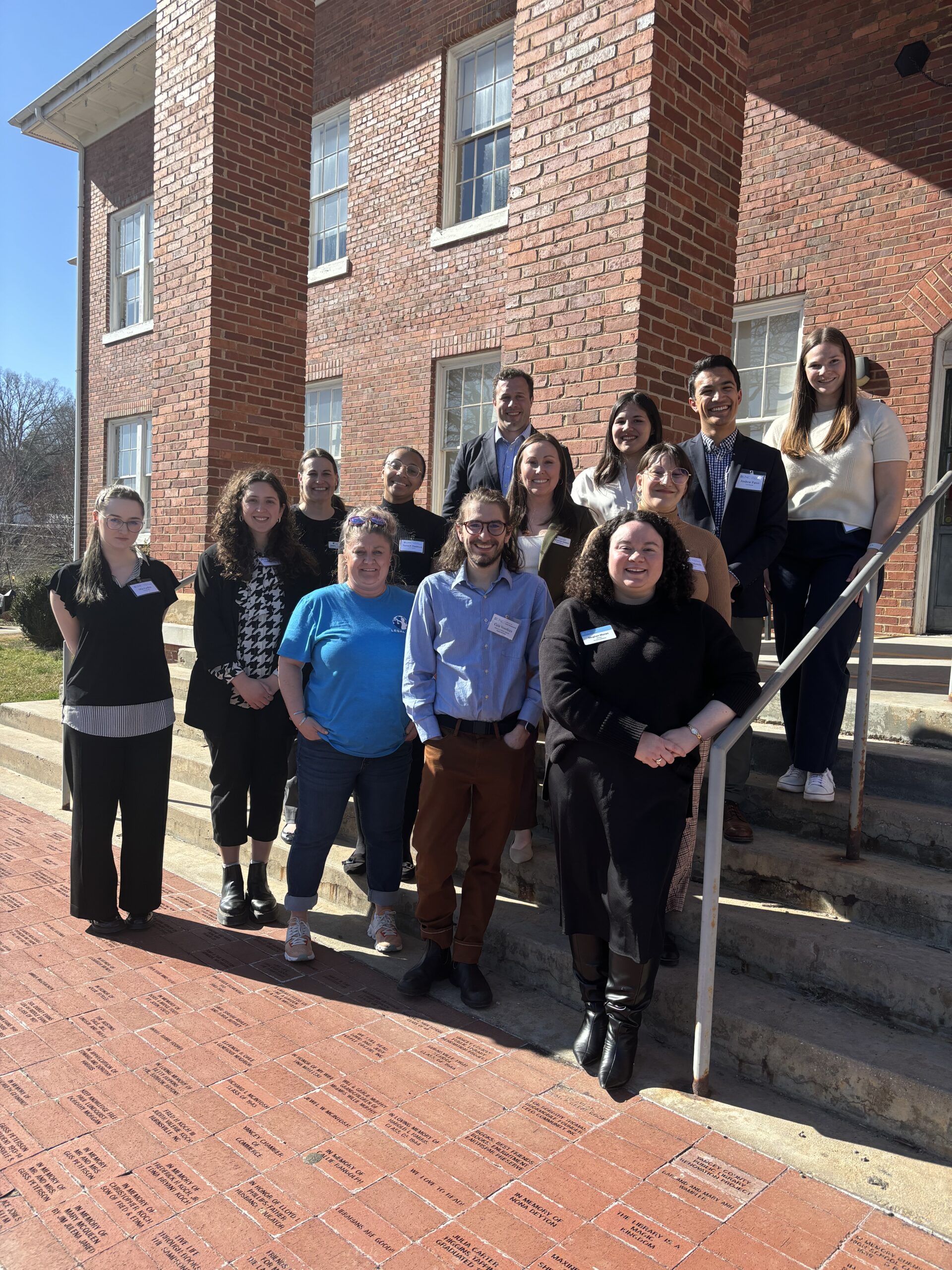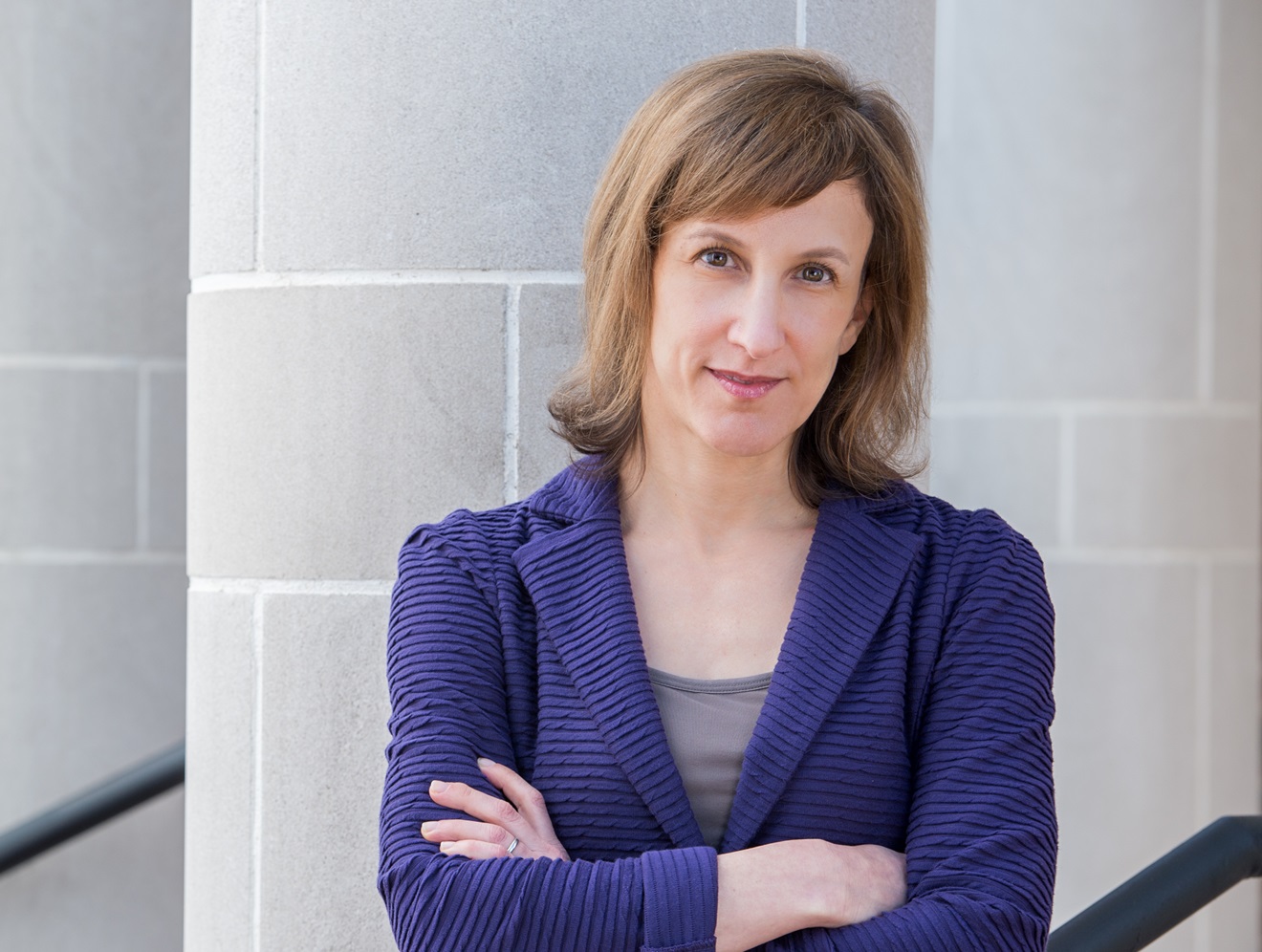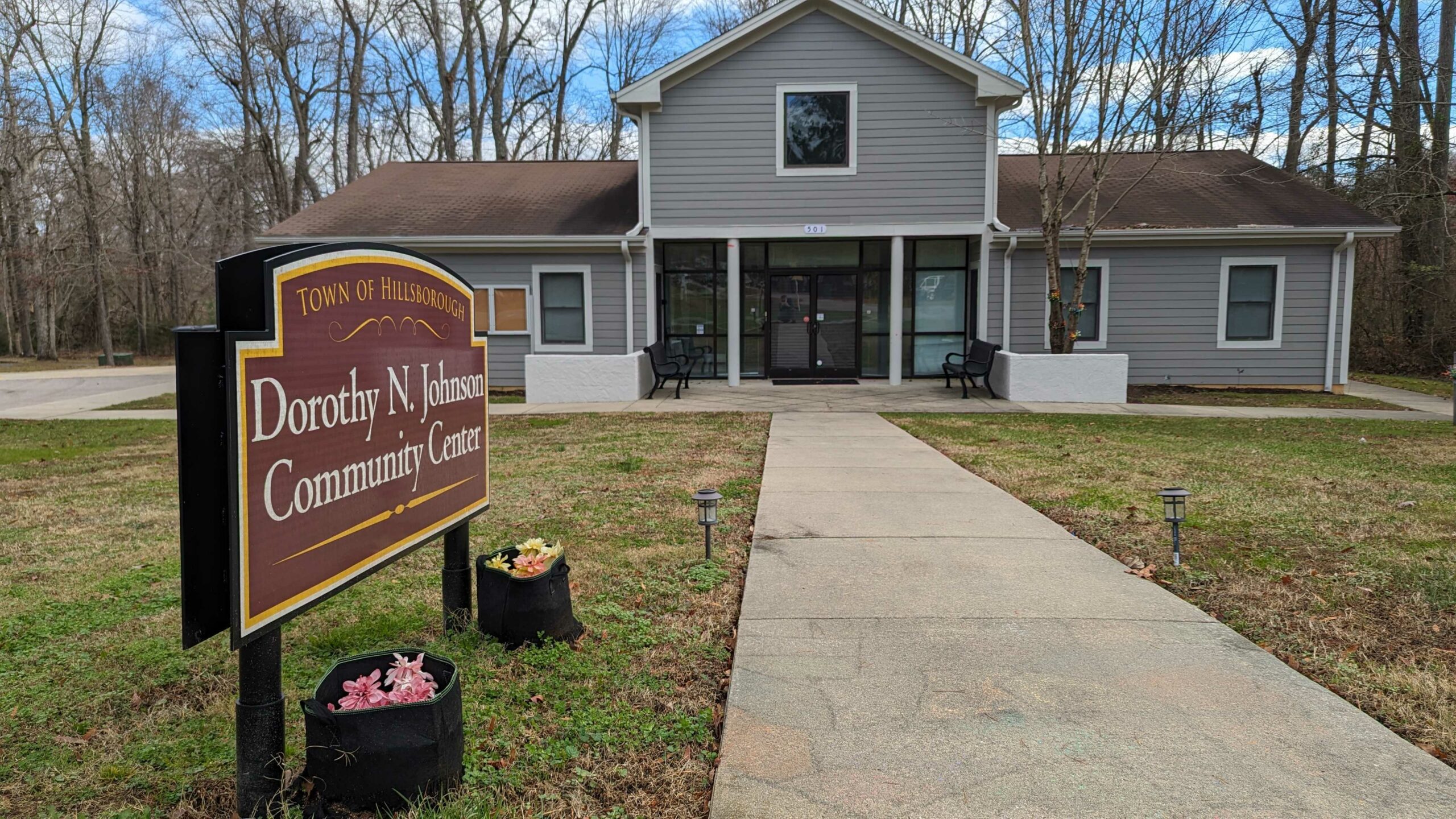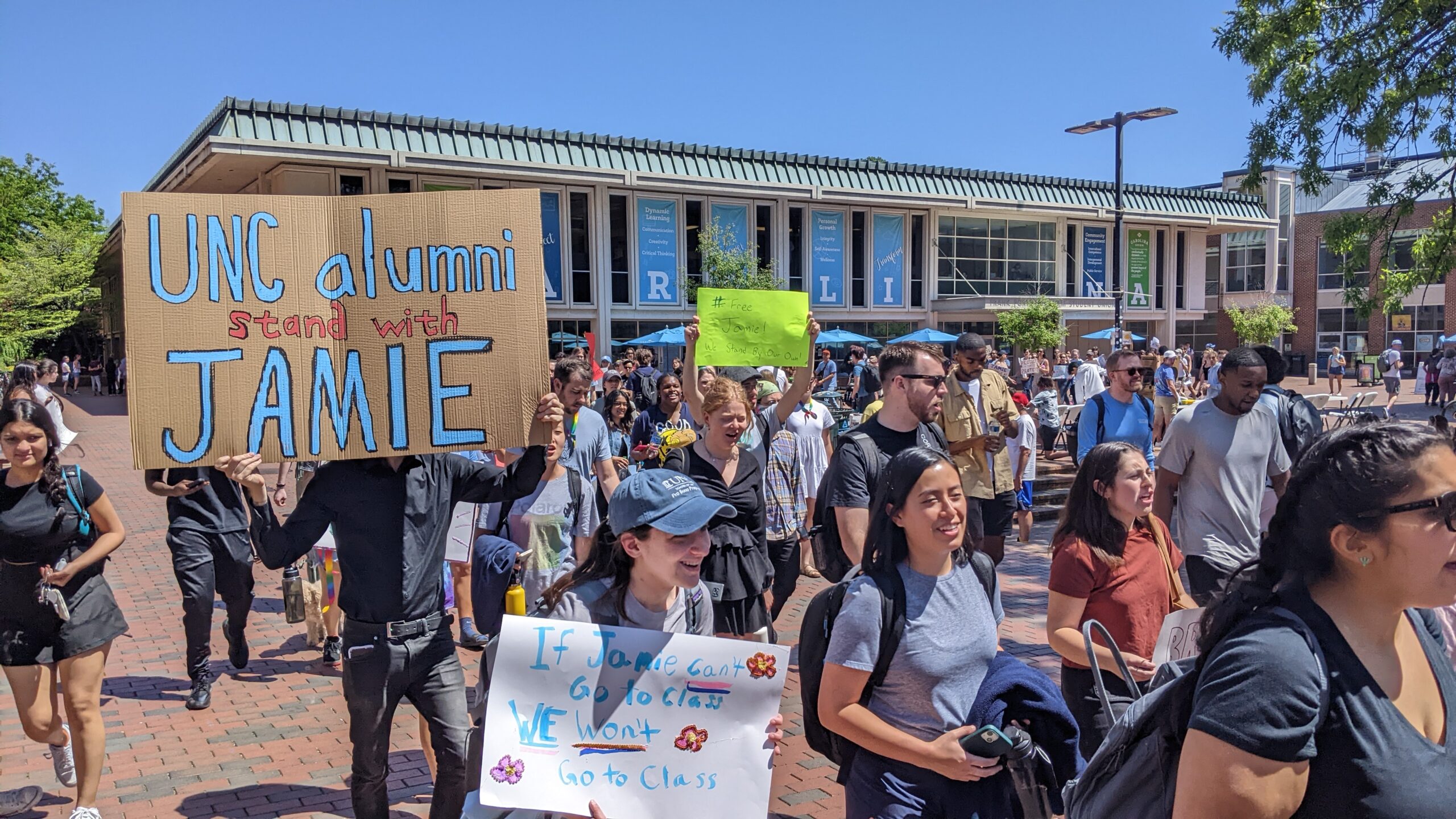Since UNC law student Jamie Marsicano was among those detained following protests and vandalism at an Atlanta public safety facility last month, their peers claim the university has not allowed them to come back to class. Friends of Marsicano’s organized a protest last Thursday against that decision, advocating for UNC to allow her to return and contribute to the law school community.
The demonstration began in the rotunda of UNC’s School of Law, with students leaving classrooms to grab signs and rainbow ribbons in Marsicano’s honor to display during the march. As the group worked its way toward South Building, more people joined in – occasionally stopping traffic and chanting Marsicano’s name.
Marsicano is one of 23 people facing charges from an incident at the construction site of an Atlanta Police training facility, which has been nicknamed “Cop City” by its opponents. A group of activists in masks burned construction equipment and threw objects at police officers the night of March 5, before police then made arrests at a nearby music festival organized in protest of Cop City. That is where Marsicano was arrested before being charged with domestic terrorism.
Meghan Rankins is a friend of Marsicano’s and one of the organizers of Thursday’s protest. Rankins said a group of law school students knew Marsicano was attending the music festival that was raided. After sending her a text about the incident and not hearing back, Rankins realized something was wrong.
“It wasn’t until the next morning that we realized [Marsicano] had actually been arrested,” they said.
After being jailed for a couple of weeks, the second-year law student was released after being granted and making bond – but Marsicano’s peers say UNC decided for her to remain away from campus. The university’s Emergency Evaluation and Action Committee ruled that the charges against Marsicano are severe enough that they are “a serious threat of disruption of the academic process, or a continuing danger to other members of the University community or University property,” according to the EEAC’s policies.
To try and sway the committee’s decision, Rankins and other friends created a petition for law students and campus community members to sign. After sending it to the chancellor the previous week, the group also brought a hard copy with 18 pages of more than 500 signatures to South Building and Chancellor Kevin Guskiewicz’s office on Thursday afternoon.
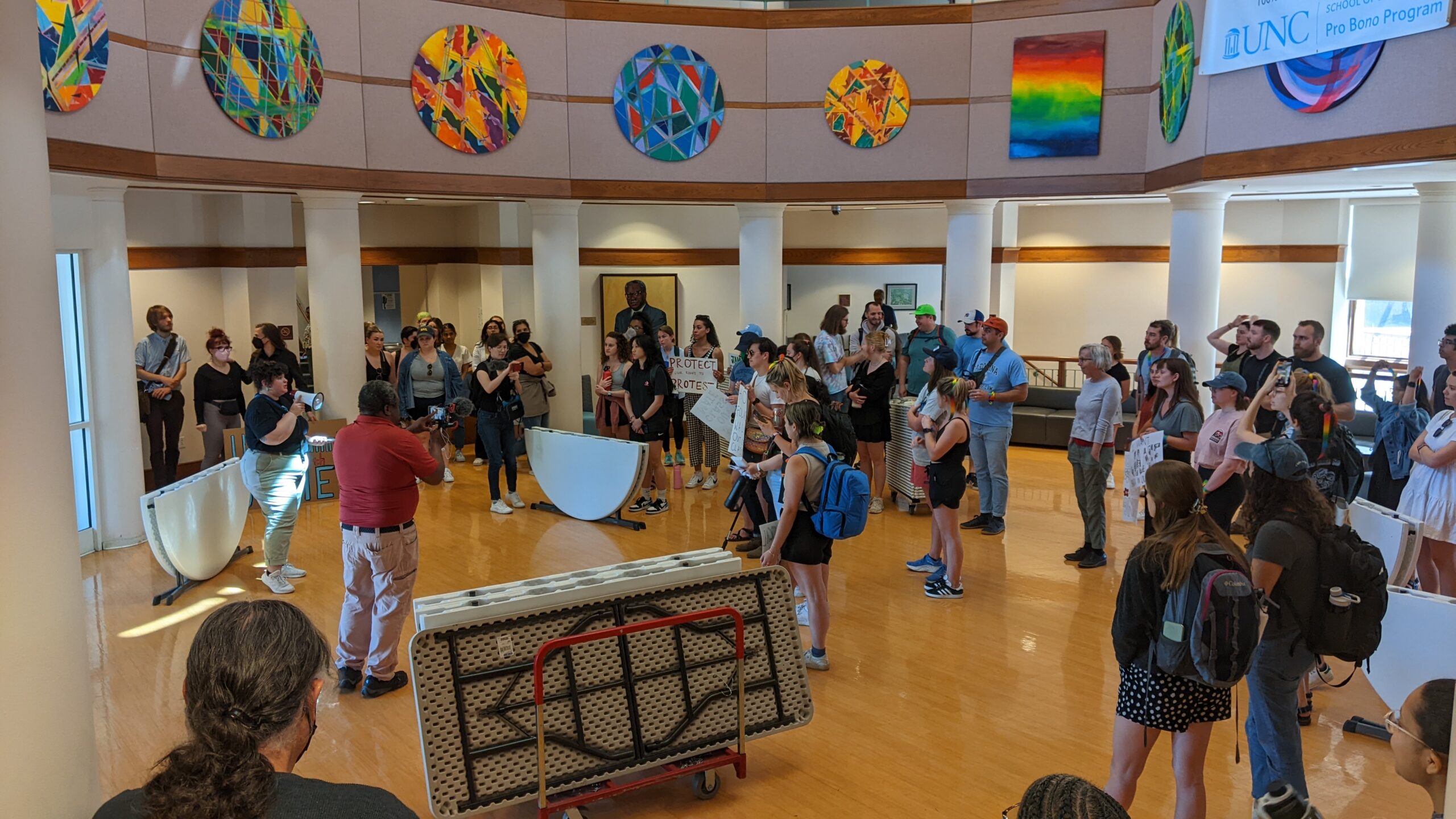
UNC School of Law students gather in the rotunda ahead of their march to South Building on April 13, 2023. Meghan Rankins (left) addresses the crowd with a megaphone.
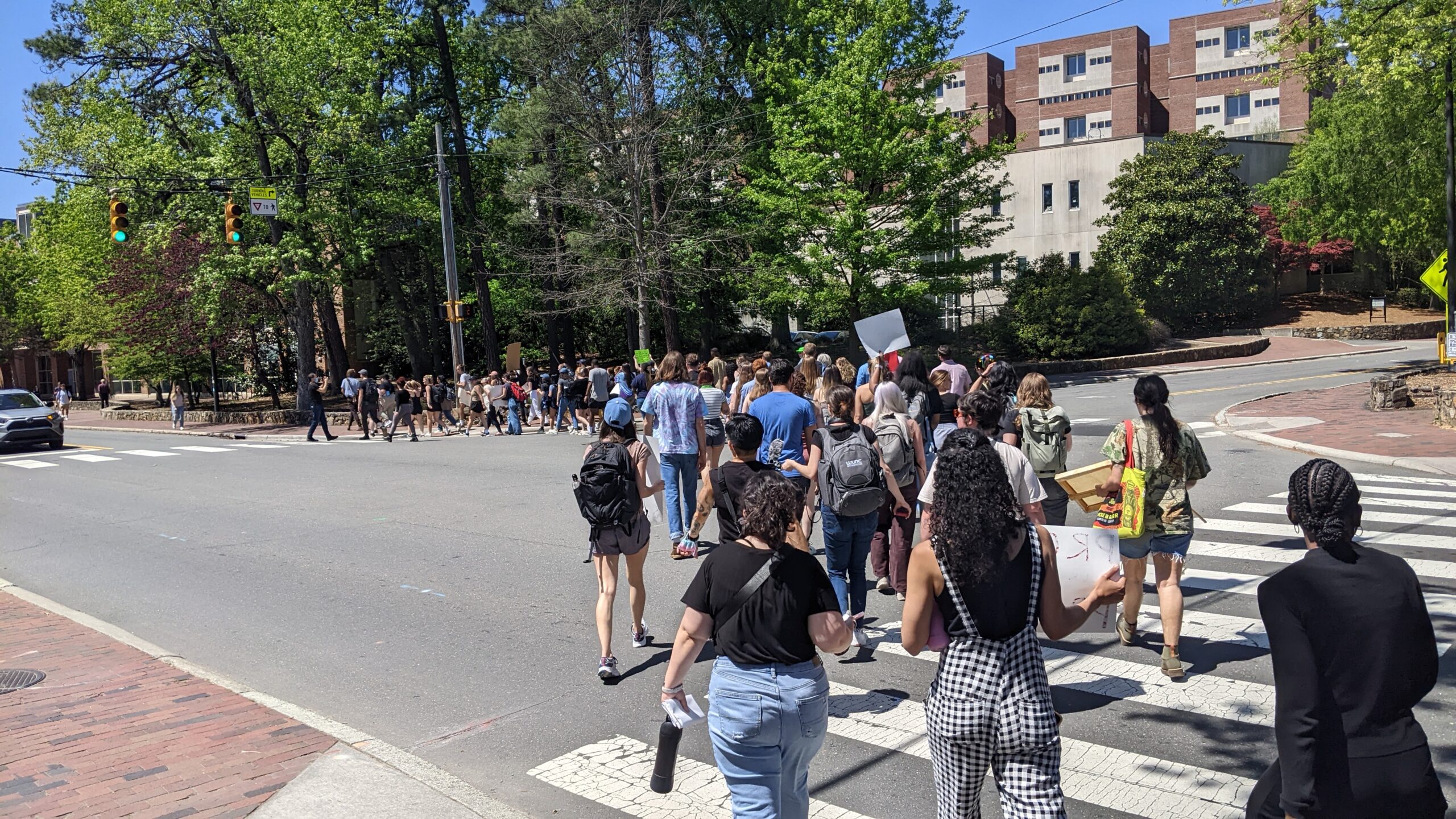
Dozens of protesters cross the intersection of South Road and Raleigh Street as part of their protest of Jamie Marsicano’s ban from UNC campus.
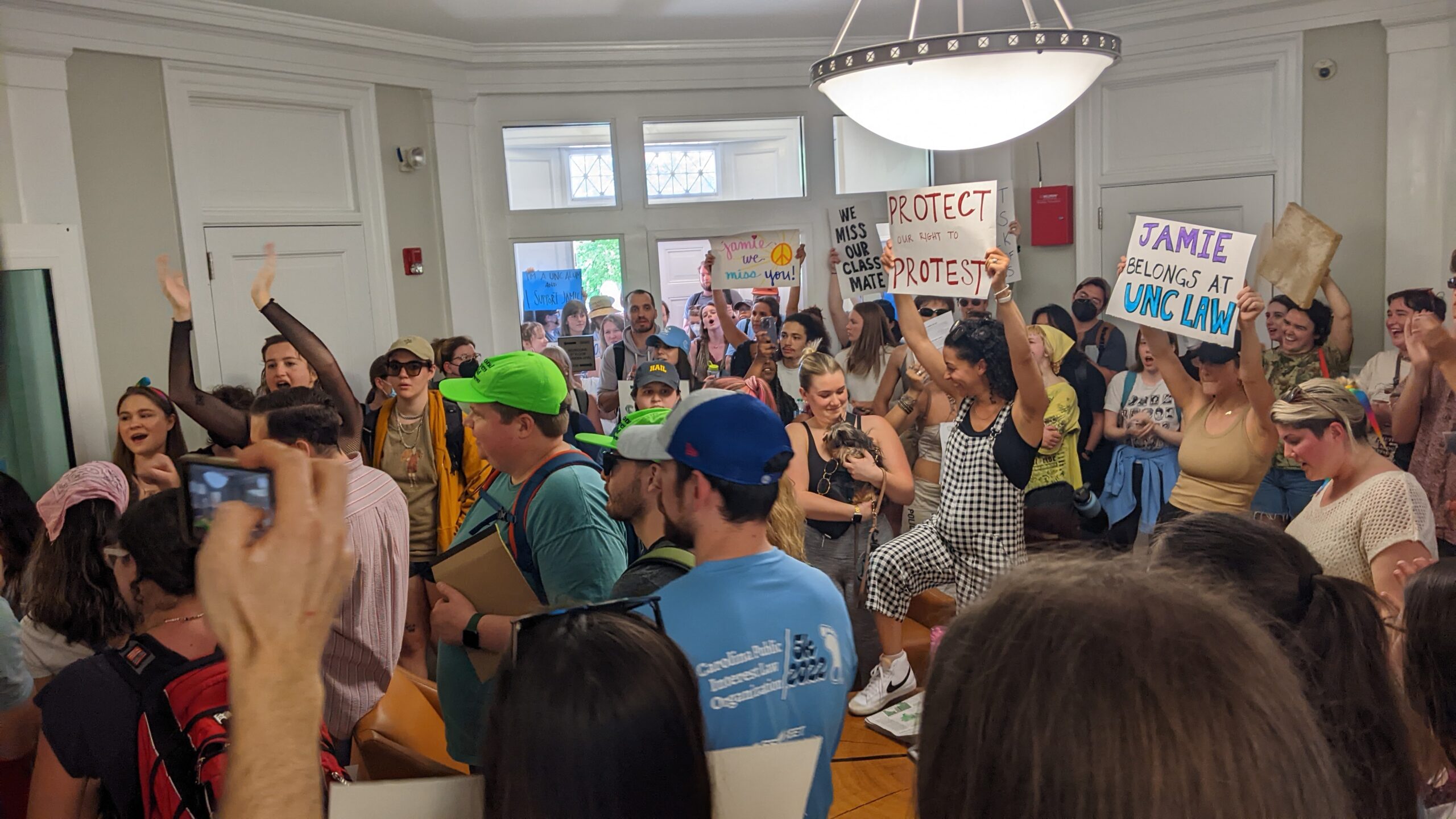
Once inside South Building, the UNC law students chanted, delivered their petition, and shared stories of Jamie Marsicano.

UNC students and community members lead a final cheer calling for Marsicano’s allowance back to campus on the steps of South Building.
During that time, protestors called the charges against Marsicano “baseless” and “bogus,” while also sharing stories of working alongside her at the law school. People of all ages gave examples of Marsicano’s willingness to provide support and advice to those having difficult days in class or over breaks as a dean’s fellow who mentors younger students. Some also shared how Marsicano adds to their group discussions and provides critical perspectives during class.
Amber Knepper, another protest organizer and friend of Marsicano’s, said that reason was partially why demonstrators chose to hold a walk-out from class.
“Honestly, even being in class normally and Jamie not being here [has caused] my mind to always be on Jamie,” said Knepper, a second-year law student. “It’s been on Jamie for the past month and impossible to do class – I’m physically there, but [mentally] I’m not. So, if Jamie can’t be here, we’re not going to be in class. We’re not going to sit here and wait around. We need answers and for her to be able to come back to campus.”
“Jamie is really integral in challenging people to not just to learn the law,” added Rankins, “but learn how law affects people and why the law is the way it is. [That’s] an incredibly important perspective to have at UNC and at any law school.”
Rankins described law school faculty’s stance of their efforts as largely “supportive from the sidelines,” adding that some wrote letters of character for Marsicano’s bond hearing. The fellow second-year law student, who says they want to pursue public defense, also recently organized a meal train for Marsicano which garnered enough support to cover her meals for the next month.
Rankins maintained their belief that Thursday’s demonstration could make a difference for Marsicano’s chances to return to campus. They said the EEAC has the power to revisit a student’s case at any point, and added that Guskiewicz’s chief of staff accepted the hard copy petition with a promise to deliver it.
Until either Marsicano’s charges are dropped – which Rankins says they hope happens – or UNC reverses its ruling, there could be more demonstrations from the collection of law students.
“[For the EEAC], the decision to ban Jamie at that time was the path of least resistance,” said Rankins. “It was going to be easier to just ban them, make [those in charge] happy – but the thing is, we now have to make it harder for them to continue to ban Jamie.
“The more that we protest,” they continued, “the easier [the path] will be to appease us and let Jamie come back.”
Knepper said she feels like the university’s decision is “devastating,” but that the right to protest continues to be a powerful one – whether for activists in Atlanta or students on UNC campus. She said she hopes Marsicano will be able to return to continue their work with the school’s community and toward becoming a lawyer.
“This is a person who is a part of this community,” she said, “who cares about this community deeply and plans to be [in North Carolina] for the rest of their life to continue to make it better.
The law school wants them here,” Knepper added. “The students, the school, we want [Marsicano] here. And I think that should be honored.”
When asked for clarification on the Emergency Evaluation Action Committee’s threshold for the banning a student, UNC Media Relations sent the EEAC’s policy page and said the university could not comment on Marsicano’s case based on student privacy laws.
Marsicano has previously been arrested during racial justice demonstrations in Mecklenburg County. The Charlotte native was charged several times in 2020 with disorderly conduct and resisting arrest before seeing those charges dropped, according to The Daily Tar Heel.
Chapelboro.com does not charge subscription fees, and you can directly support our efforts in local journalism here. Want more of what you see on Chapelboro? Let us bring free local news and community information to you by signing up for our biweekly newsletter.

